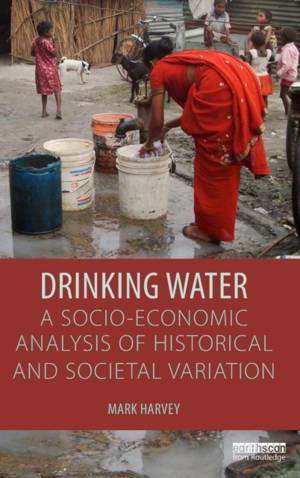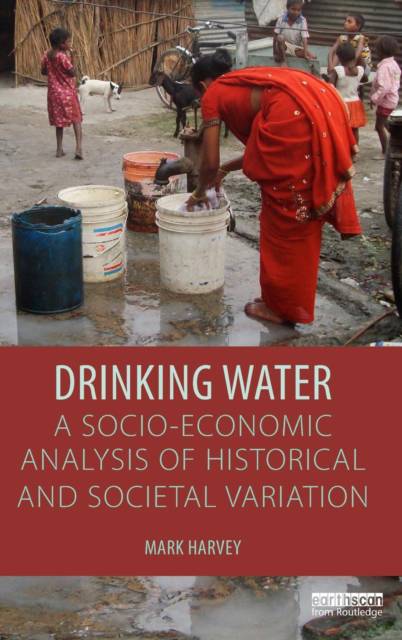
- Afhalen na 1 uur in een winkel met voorraad
- Gratis thuislevering in België vanaf € 30
- Ruim aanbod met 7 miljoen producten
- Afhalen na 1 uur in een winkel met voorraad
- Gratis thuislevering in België vanaf € 30
- Ruim aanbod met 7 miljoen producten
Drinking Water: A Socio-Economic Analysis of Historical and Societal Variation
Mark HarveyOmschrijving
In this fascinating and challenging work, the author analyses the way water for drinking is produced, distributed, owned, acquired, and consumed in contrasting ways in different settings. From the taken-for-granted, all-purpose water, flowing out of taps in advanced economies to extreme inequalities of access to water of variable qualities, drinking water tells its own interesting story, but also reflects some of the centrally important characteristics of the state and economies of the different countries. From sparkling mineral water in Germany, to drinking water garages in Taiwan, from water tankers in Mexico City to street vendors in Delhi markets, comparisons are made to stretch our understanding of what we mean by 'an economy', quality, and property rights, of water.
In addition, the study of socio-economics of drinking water provides a route into understanding interactions between polity, economy and nature. One of the major themes of the book is to analyse the 'sociogenic' nature of sustainability crises of economies of water in their environmental settings: epidemics, droughts, pollution, land subsidences and floods. Overall it develops an economic sociology, neo-Polanyian approach in a comparative and historical exploration of water for domestic consumption.
Specificaties
Betrokkenen
- Auteur(s):
- Uitgeverij:
Inhoud
- Aantal bladzijden:
- 192
- Taal:
- Engels
Eigenschappen
- Productcode (EAN):
- 9781138816978
- Verschijningsdatum:
- 6/10/2015
- Uitvoering:
- Hardcover
- Formaat:
- Genaaid
- Afmetingen:
- 157 mm x 234 mm
- Gewicht:
- 680 g

Alleen bij Standaard Boekhandel
Beoordelingen
We publiceren alleen reviews die voldoen aan de voorwaarden voor reviews. Bekijk onze voorwaarden voor reviews.











